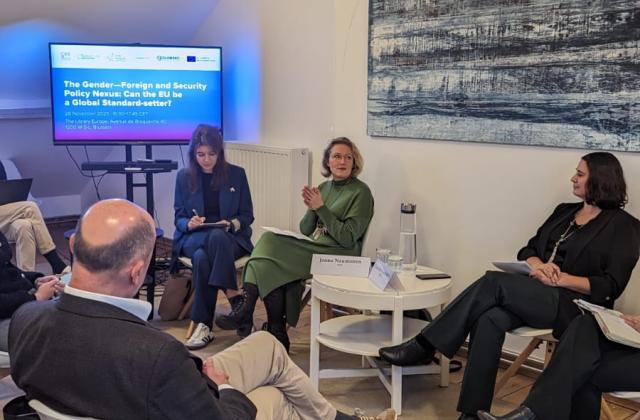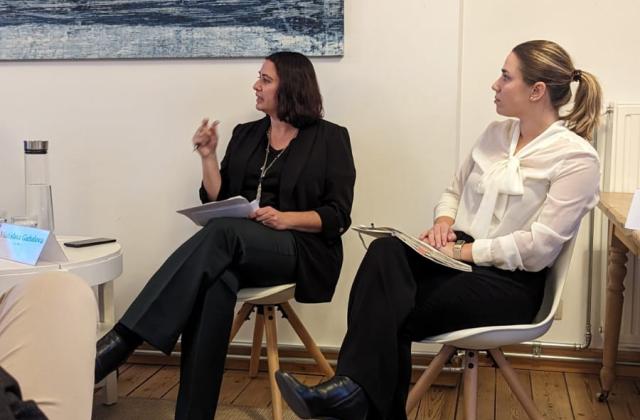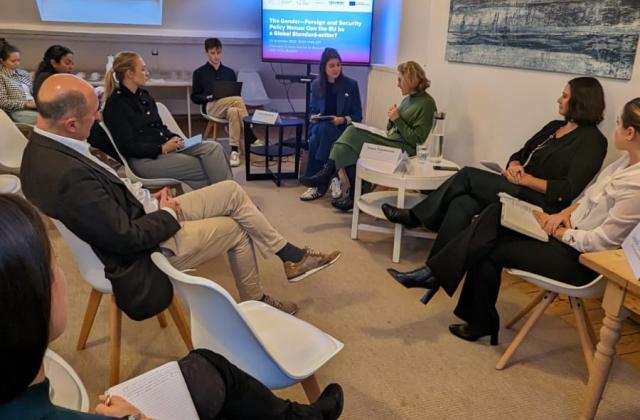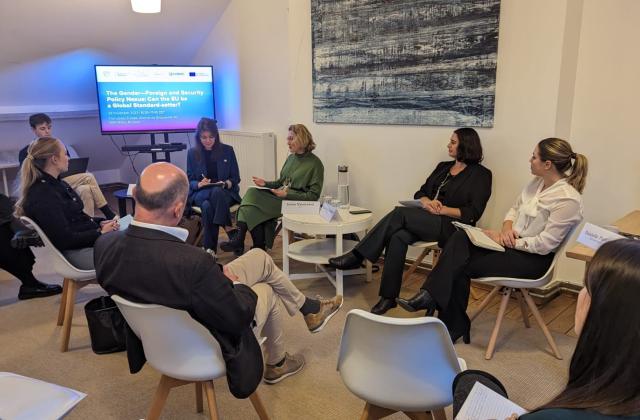The Gender—Foreign and Security Policy Nexus: Can the EU be a Global Standard-setter?
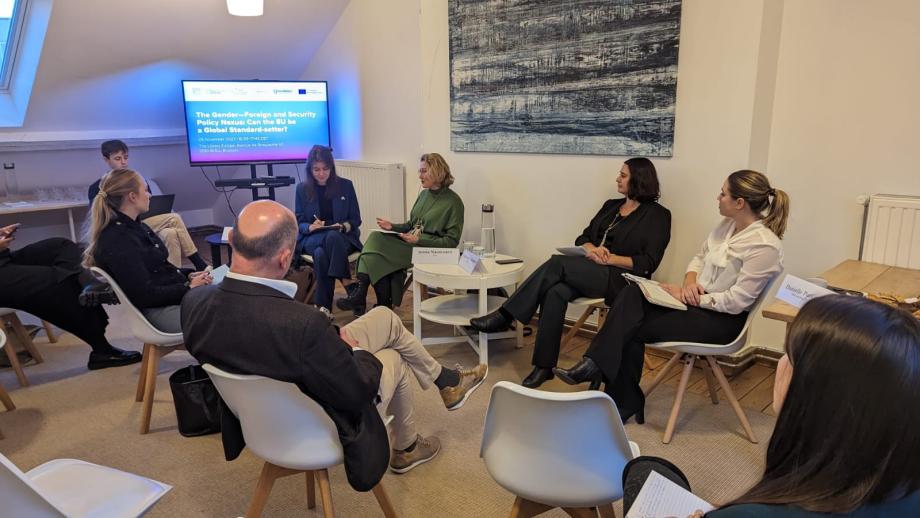
In the intricate tapestry of the European Union's (EU) foreign and security policy, a nuanced understanding of its complex dynamics becomes imperative. The EU, as a union comprising 27 member states, necessitates unanimity to wield significant global influence. While the Lisbon Treaty articulates gender equality as a fundamental European value, its focus is rather narrow, centering on equality between men and women. Nevertheless, the EU has transcended the confines of the Treaty, producing Council Conclusions that delve into the intricacies of the gender-foreign and security policy nexus.
Notably, recent Council Conclusions on EU-Latin America and the Caribbean relations underscore gender equality as a shared value, asserting its centrality to the fabric of diplomatic relations. These conclusions not only emphasize gender equality but also address nuances such as sexual orientation, gender identity, the gender digital divide, and the grave issue of sexual- and gender-based violence.
Concrete manifestations of the EU's commitment to the gender-foreign and security nexus materialize in initiatives like the Afghan Women Leaders Forum (AWLF) and the "Ukrainian Conflict-related Sexual Violence Integrated Support Mechanism." The AWLF stands as a testament to the EU's dedication to amplifying voices that often go unheard globally. More than a hundred Afghan women had their voices elevated on the global stage, shedding light on their unique experiences. Meanwhile, the Ukrainian project focuses on strengthening the investigation and prosecution of conflict-related sexual violence, showcasing the EU's proactive stance in addressing critical issues on an international scale.
However, there is still work to be done when it comes to gender mainstreaming across different EU foreign and security policies. For example, the implementation of measures such as the Temporary Protection Directive (TPD) has encountered disparities across Central and Eastern European (CEE) countries. This divergence impacts the safety and support provided to women facing distinctive challenges during crises. The plight of Ukrainian women forcibly displaced by conflict serves as a poignant illustration. While the TPD was introduced to offer a safeguard, its uneven implementation in CEE countries has resulted in varying degrees of support. Challenges range from limited access to childcare and safe accommodation to instances of sexual and gender-based violence and human trafficking. Furthermore, navigating life in a new country, often with an unfamiliar language, compounds the difficulties faced by these women.
As discussions on gender equality gain prominence, especially in the context of democracy, the approaching European elections in 2024 bring forth a critical juncture. The struggle for gender inclusion in leadership roles and democratic reforms remains palpable, even in longstanding democracies. This prompts reflection on the expectations from newly emerged democracies. Paradoxically, while women often dominate discussions on gender equality, the lack of men's engagement perpetuates polarization, marginalization, and long-term disagreements on the topic.
In an attempt to bridge this gap, the European External Action Service (EEAS) has taken strides toward engaging men through a strategic focus on gender-responsive leadership. By emphasizing the importance of involving men in discussions on gender, the EEAS aims to foster a more inclusive and comprehensive dialogue, steering away from perpetuating gender-related issues as exclusively women's concerns. Recognizing that true progress requires a collaborative effort involving all genders, the EU seeks to dismantle the barriers hindering substantial advancements in gender equality.
Turning attention to the Central and Eastern European (CEE) countries, complexities emerge in the support extended to displaced Ukrainian women and the implementation of gender-related policies, such as those concerning abortions and human rights. Some CEE countries exhibit resistance, revealing societal and cultural nuances that impact the region's stance on these critical issues. However, amid challenges, CEE countries could present a unique opportunity for the EU to assert a leading role in setting global standards for equality. Unburdened by post-colonial baggage, these nations can engage effectively with African, Latin American, and Asian regions, offering a fresh perspective and serving as living examples of successful transitions from communism to democracies.
The role of civil society emerges as pivotal in mainstreaming gender into the EU's foreign and security policies. Civil society organizations, with their inherent diversity, play a crucial role in holding the EU accountable for its commitments. This accountability is evident in the scrutiny facilitated by reviews and reports that evaluate initiatives like the Gender Action Plan III. Financial support for representatives of civil society becomes crucial, especially in times when democratic values face challenges. It is observed that as democracy experiences a decline, civil society spaces are often the first to shrink, underscoring the vulnerability of these spaces in preserving democratic principles.
As the global population gears up for the pivotal 2024 elections, the intersection of gender, foreign policy, and security takes center stage. The EU's commitment to shaping global standards for equality, navigating the complexities of its member states, and engaging with civil society underscores a multifaceted approach. In a world grappling with evolving challenges, the EU's role in advocating for gender equality becomes not just a diplomatic necessity but an obligation. More than 50% of the global population heading to the polls in 2024 magnifies the significance of these efforts, emphasizing the urgency for a comprehensive and inclusive approach to address gender disparities on the global stage.
These were some of the points discussed by Jonna Naumanen, Senior Expert on Gender Equality and WPS to the EU Ambassador for Gender & Diversity; Danielle Piatkiewicz, Founder, DEP Consulting; Vladislava Gubalova, Senior Fellow and CEE Her Initiative Lead, GLOBSEC and moderator Sofiia Shevchuk, Founder, VONA at an event “The Gender—Foreign and Security Policy Nexus: Can the EU be a Global Standard-setter?” which took place on 28 November 2023, in Brussels, Belgium.
